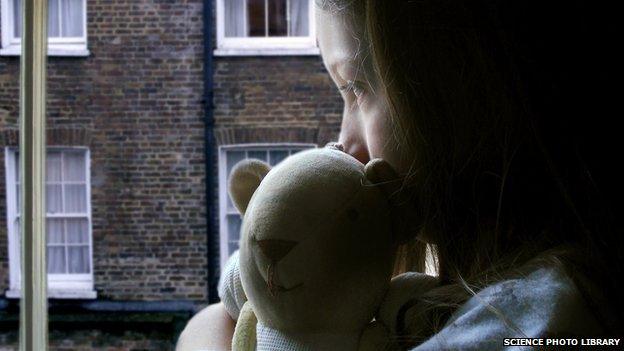Children in care should stay until 25 - children's commissioner
- Published

Vulnerable young people should be allowed to stay in care until they are aged 25, the government's children's commissioner for England has said.
A survey of nearly 3,000 children and young adults found nearly a third had felt forced to fend for themselves too early, Anne Longfield said.
She said most parents would not "wave goodbye" to children at 18 and "we shouldn't do so for children in care".
A Department for Education spokesman said reforms had been made since 2010.
Ms Longfield - who took up her post as children's commissioner in March - said there were about 69,000 children in care in the UK.
'They need support'
She said it was "unacceptable" that about half of those youngsters were confused about why they were in care.
"This group of young people are probably the most vulnerable, often having suffered from extreme neglect, often abuse and often trauma," she said.
"They are no longer living with their parents and have often not had stable placements. They are the least likely to find employment and most at risk of drugs, alcohol and crime.
"They need support as they go into their adult life."
She said children in care should be able to keep the same social worker for longer and should receive therapeutic care to "recover from their difficult past experiences".
"We know that many children who leave care still struggle to reach their full potential and helping them to overcome their harmful experiences and build their resilience and emotional well-being for the future will help them to do so."
Ms Longfield, a former chief executive of the 4Children charity, was announced as the new children's commissioner last year, to promote and protect the rights of all children in England.
A Department for Education spokesman said the government was "committed to improving the lives of care leavers".
"That is why we have introduced a comprehensive series of reforms since 2010 to help and support them.
"We welcome the survey's findings that the vast majority feel they live in the right place, are treated with respect and feel part of the family.
"But we are not complacent and will continue to work to make sure all young people, whatever their background, have the best opportunity to achieve their full potential," the spokesman added.
- Published23 June 2015

- Published3 March 2015

- Published11 March 2015
